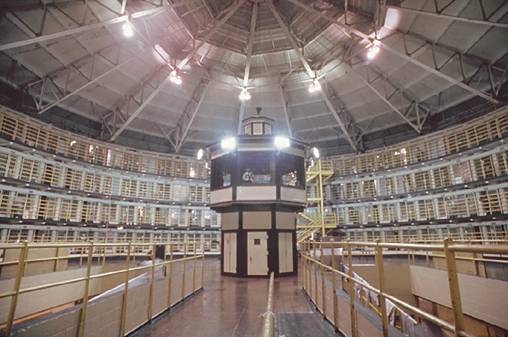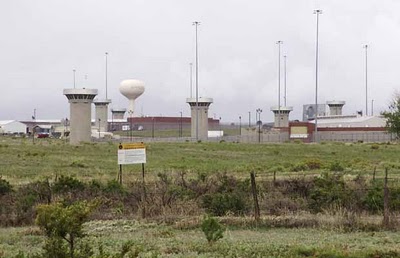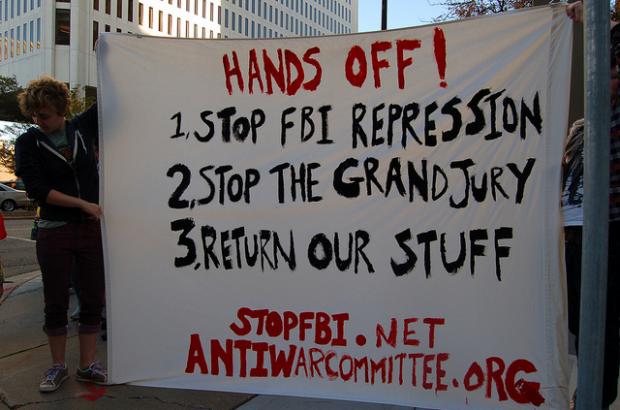Podcast: Play in new window | Download
Updates:
- Birthright Citizenship Looms as Next Immigration Battle
- Scott Sisters To Be Released On Condition of Donating Kidney
- Former US Vice President Dick Cheney Doesn’t Have A Pulse. Prescribed Warfarin
- IACHR Sets Unprecedented Recommendations for Haitian Govt to Address Wave of Sexual Violence in Camps
—–
Ohio Supermax: Hunger Strike In Long Term Solitary Confinement
In an Ohio Super Max prison, 4 prisoners facing execution are confined to permanent restrictive solitary confinement. They’re on a hunger strike, bringing attention to their requests to simply be placed on death row. What’s the difference? Death row isn’t as restrictive as permanent solitary confinement. Jules Lobel, Vice President of the Center for Constitutional Rights and Professor of Law at the University of Pittsburgh explains in detail the differences of regular prison, death row and solitary confinement conditions.
Jules is working to defend the prisoners, he says that long term, essentially permanent and very harsh solitary confinement is both cruel and unusual punishment that violates due process requirement of annual review. The state of Ohio has decided to keep these four in solitary confinement permanently. It’s not only in Ohio, permanent solitary confinement is becoming a problem nationally, particularly with people convicted of terrorism related offenses, including material aid to terrorism.
- They’re in cells no bigger than a parking spot in New York City. They’re confined 23 hours a day. They’re allowed out 5 hours a week. The cell doesn’t have bars, like the ones you’d see on television. It’s a solid steel door. The prison officials actually put strips around the door to prevent any sound from getting out.
- There’s a little window. They’ve been locked in this situation for 17 years.
- It’s because they were the leaders of prison rebellion in Lucasville, Ohio, demanding better conditions.
- In that rebellion a guard and inmates were killed. Because they were leaders of that rebellion they were given the death penalty.
- After the prison riot, they built a super max prison with 500 cells.
- And they had no where near 500 people under any conceivable criteria would warrant this kind of confinement.
- The problem in this case which will probably be the problem in Guantanamo, is the annual review.
- One of the prison officials said we’re going to keep you here forever, there’s nothing you can do to get out.
- People on death row have contact visits. They’re not kept in for 23 hours a day. They can eat meals with other prisoners.
- They’re totally isolated from the outside world, and totally isolated from each other. The only thing they said they could do is deprive themselves of basic human needs namely food.
- When you go to these prisons and you look into the cells you see men pacing back and forth.
- If you can get a psychologist to declare you mentally ill, they’ll transfer you out of the super max.
- In the United States I think there is a general tendency in recognizing that this is psychological harm.
- In the last 20 years, there’s been a tremendous growth of super max(s)
- Support the Lucasville Prisoner Hunger Strike
Guest – Jules Lobel, through the U.S. Center for Constitutional Rights, Jules has litigated important issues regarding the application of international law in the U.S. courts. In the late 1980’s, he advised the Nicaraguan government on the development of its first democratic constitution, and has also advised the Burundi government on constitutional law issues. Professor Lobel is editor of a text on civil rights litigation and of a collection of essays on the U.S. Constitution, A Less Than Perfect Union (Monthly Review Press, 1988). He is author of numerous articles on international law, foreign affairs, and the U.S. Constitution in publications including Yale Law Journal, Harvard International Law Journal, Cornell Law Review, and Virginia Law Review. He is a member of the American Society of International Law
——
Defending Grand Jury Protesters
As many listeners know, last September in a nationally coordinated raid, the FBI targeted anti-war and Palestinian solidarity activists, raided their homes and subpoenaed them to appear before a grand jury. The 13 people all of whom were critical of US foreign policy, later withdrew and asserted their right to remain silent. But in early December of 2010 subpoenas were reissued against 4 of those targeted in the raids. Three women in Minneapolis, Tracy Molm, Anh Pham, and Sara Martin were sent reactivated subpoenas by Fitzgerald’s office and new Grand Jury dates.
We’re joined by Chicago based journalist and activist Maureen Murphy who also received a new subpoena. Maureen is managing editor at the website Electronic Intifada, though the site is not being targeted in the FBI probe. In a statement, the Electronic Intifada said, quote, “Although The Electronic Intifada itself has not been a target, we consider the grand jury investigation and all of the subpoenas to be part of a broad attack on the anti-war and Palestine solidarity movements and a threat to all of our rights.”
We are also joined by regular guest, attorney Michael Deutsch from the People’s Law Office and is working with the defense committee.
- I don’t know why its happening, we do know that no crime has been identified. There’s nothing written on my subpoena that I need to bring any documents.
- We believe that the government is subpoenaing us so that we come before a grand jury and name names, and tell them how we organize so they can further disrupt their movement. I’m one of 23 activists now who have gotten the knock at the door. My subpoena says nothing but show up, so I think this is really a fishing expedition.
- In one home they took everything with the word Palestine on it.
- The government has expended a lot of resources on an investigation of a group that has always worked pubicly to advocate for a more just US policy. I was visited by the FBI on December 21, 2010.
- A national committee that has formed around the raids and subpoenas is calling for a day of action January 25, in front of federal buildings and FBI headquarters.
- I’ve already stated that I’m not going to testify.
———
- In December the FBI went out with a stack of subpoenas, and wound up subpoenaing 9 additional people in the Chicago area which then makes 23.
- These people who are subpoenaed are all active in Palestinian support work. Arab American Action Network, Palestinian Support Group. This next wave of subpoenas are people who are they’re trying to gather information from.
- I’ve never in all my experience seen so many people subpoenaed to a grand jury.
- A lot of the Palestine support work has gone on in Chicago.
- Originally 14 people were subpoenaed and each one through their lawyer said they weren’t not going to voluntarily come in. Now they haven’t decided to enforce the subpoena, they said well get back to you when we decide what we’re going to do.
- There are 23 people lined up trying to figure out what the next step of the government is.
- These prosecutors don’t seem to know who they’re dealing with. They see the grand jury as a tool of oppression.
- I believe that the Israeli security apparatus is involved in supplying information to the US government.
- There’s no evidence here of any type of violence or weapons. We’re dealing with advocacy and associations.
- Despite Holder v the Humanitarian Law Project, we believe that it’s a total violation of the First Amendment.
- The underlying tenor is going after people because of their political ideology.
Guest – Maureen Murphy is a journalist and Palestine solidarity activist from Chicago. She spent a few years living and traveling throughout the Middle East, interning for the Palestinian human rights organization Al-Haq in the occupied West Bank in 2004-06 before she was denied entry and deported by the Israeli government. She also lived in Lebanon in 2007, learning about the human rights situation for Palestine refugees and the impact of U.S. foreign policy there.
Guest – Michael Deutsch, attorney with the People’s Law Office in Chicago.


